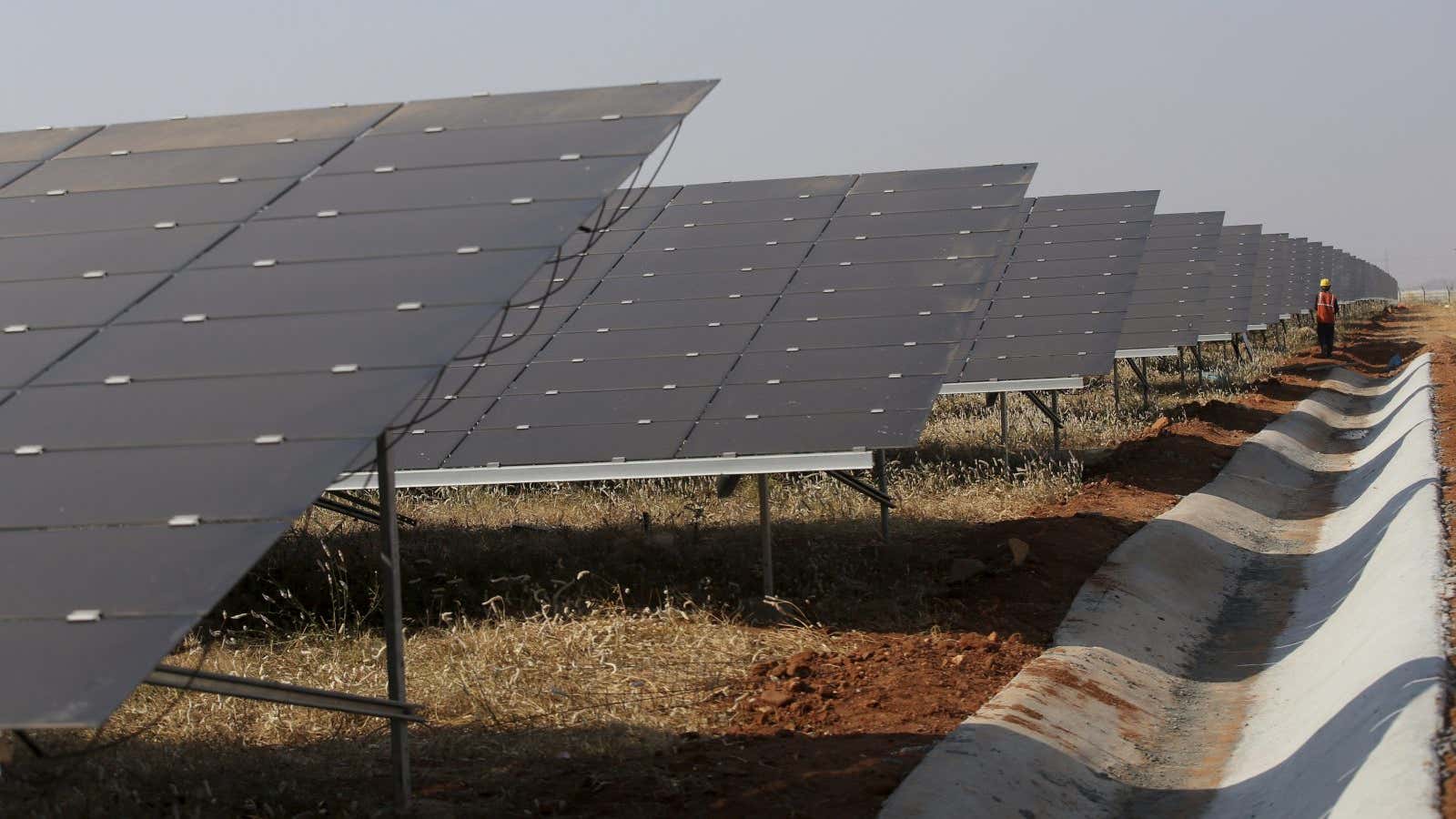One key to making electricity more efficient across the world is figuring out power storage. In recent years, lithium-ion batteries have overtaken lead-acid batteries as the industry-wide standard. But that might be set to change thanks to a new milestone in power storage innovation: zinc-air batteries
NantEnergy, a US energy company, has announced the development of a zinc-air battery which stores energy and is considerably cheaper than other battery types currently on the market, including the popular lithium-ion battery. Compared to lithium-ion battery costs estimated to be between $300 and $400 per kilowatt-hour, NantEnergy says its zinc-air battery has cut cost down to less than $100 per kilowatt-hour—a threshold at which power storage is expected to be affordable enough to have more mainstream impact.
Beyond potential pricing points, zinc-air batteries hold other advantages over lithium-ion batteries as they don’t pose fire hazards or need to prevent overheating. Sourcing cobalt, an essential mineral in lithium-ion battery manufacturing, from DR Congo, the world’s largest producer, has also been problematic as global brands have sought to look elsewhere given the country’s political instability and desire to hike cobalt taxes.
Like lithium-ion, the potential applications for zinc-air batteries range from powering electric cars and also homes and businesses. As the world increasingly turns to renewable energy, optimizing battery storage is crucial to decrease cost, boost uptake among customers and ultimately, reduce carbon emissions.
But in the least electrified regions of the world, like Africa where 450 million people still lack access to power, the need is more urgent. NantEnergy says its zinc-air batteries have already been successfully tested in 110 villages that previously had no access to electricity in parts of Asia and Africa, including Indonesia and Madagascar. But with only 55 megawatt-hours of storage deployed globally, the company is looking to boost scale with a battery manufacturing facility set to open in California next year.
Like most alternatives to national grids also existing across Africa, zinc-air batteries will be deployed alongside solar panels in micro-grids. Zinc oxide is separated into zinc and oxygen with electricity from solar panels. The zinc that’s generated then stores energy which, combined with air, can discharge electricity after sunset. And micro-grids are already touted as a crucial part of power infrastructure in African countries like Nigeria where rural electrification rate is a meager 36%.
NantEnergy is headed by Patrick Soon-Shiong who’s also the owner of the Los Angeles Times and part owner of NBA side, Los Angeles Lakers. So far, the company has received funding from the World Bank, the United States department of energy and the International Finance Corporation.
